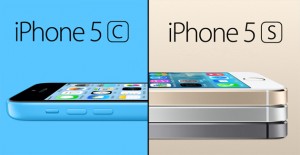Apple launched two versions of the IPhone to appeal to two target groups: iPhone5C for those who are cost-conscious, and the iPhone5S for those who want a luxurious version. From my friend Jessica Lao’s blog on “IPhone5, Dilemma in Choosing Which Phone to Buy,” she believes that such strategy is a huge leap for Apple.

I, however, don’t see it working well in the market in China. According to market research firm Canalys, statistics showed that Apple currently has 4.8% of sales in China, down from 9.1% in 2012. Personally, reasons for this might be that Chinese people generally value prestige over functionality. Since it’s almost impossible to distinguish iPhone5 from iPhone5S, Apple failed to satisfy customers’ desire to show off the feeling of superiority from having the newest iPhone. Since iPhone5C is positioned as a low-end version of iPhone5S, purchasing iPhone5C doesn’t satisfy such desire either. I mean, really, what’s the point of buying a new phone that looks exactly the same as the one I already have? And why would I buy an iPhone5C that’s almost like telling others I cannot afford an IPhone5S?
Sometimes it’s customers’ attitude and purchase behaviors that determine how successful a product is, not the product itself.
Reference:
http://www2.macleans.ca/2013/09/26/chinas-apple-clone/
Picture Resource:









 erican History. By misrepresenting earnings reports, the executives of ENRON embezzled funds funneling in from investors who were not privy to the true financial condition of Enron. It took Enron 16 years to go from about ten billion dollar assets to more than sixty-five billion dollar assets, and took just less than a moth to go bankrupt. Looking at the case, Enron’s culture contributed much to this ethical scandal. Indeed, Enron emphasized competition and financial goals only. The harsh, condescending atmosphere resulted from the sole pursuit of financial achievements caused a culture of deception. Due to the fear of losing jobs, employees started blindly focusing on making good financial numbers and ignored the value of ethic. Once someone started cheating, his co-workers would have to do the same- regardless of the notion of righteousness- to keep up the financial achievements and avoid losing jobs. This fiercely competitive environment also led to a lack of communication among employees. When there was little information being shared, nobody really has the “big picture” perspective of the company’s operation. Thirdly, the lack of communication between employers and employee also contributed to the fraud. In Enron, it’s discouraged to express one’s doubts and opinion on the executive team. Therefore, employees in Enron were pressured to shut their mouths, protect their own short-term interests, and try to achieve their goals even if it went against ethical standards.
erican History. By misrepresenting earnings reports, the executives of ENRON embezzled funds funneling in from investors who were not privy to the true financial condition of Enron. It took Enron 16 years to go from about ten billion dollar assets to more than sixty-five billion dollar assets, and took just less than a moth to go bankrupt. Looking at the case, Enron’s culture contributed much to this ethical scandal. Indeed, Enron emphasized competition and financial goals only. The harsh, condescending atmosphere resulted from the sole pursuit of financial achievements caused a culture of deception. Due to the fear of losing jobs, employees started blindly focusing on making good financial numbers and ignored the value of ethic. Once someone started cheating, his co-workers would have to do the same- regardless of the notion of righteousness- to keep up the financial achievements and avoid losing jobs. This fiercely competitive environment also led to a lack of communication among employees. When there was little information being shared, nobody really has the “big picture” perspective of the company’s operation. Thirdly, the lack of communication between employers and employee also contributed to the fraud. In Enron, it’s discouraged to express one’s doubts and opinion on the executive team. Therefore, employees in Enron were pressured to shut their mouths, protect their own short-term interests, and try to achieve their goals even if it went against ethical standards.